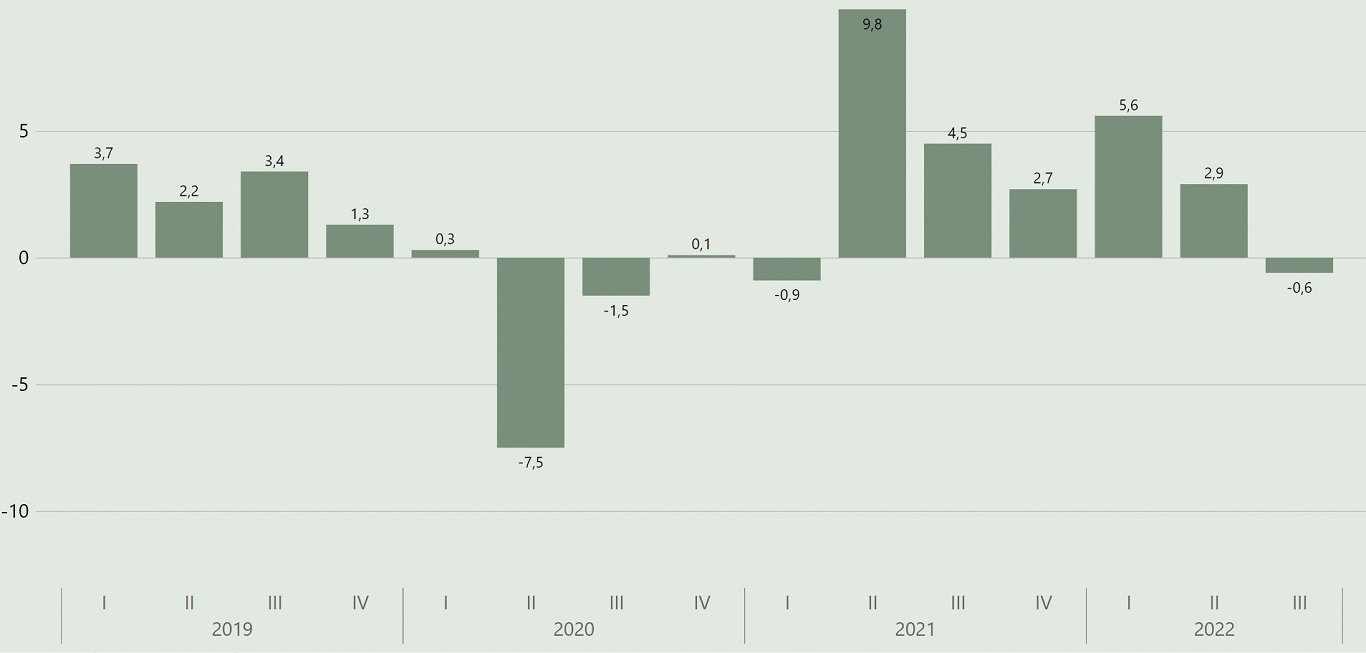The Finance Ministry's (FM) forecast for gross domestic product (GDP) growth for 2022 has been reduced to 1.6%, while a fall in GDP of 0.6% is forecast in 2023, the FM reported.
Compared to previous forecasts for macroeconomic indicators in early August this year, the forecast for GDP growth for 2022 has been reduced by 1.2 percentage points and by 1.6 percentage points for 2023.
With the strong recovery in private consumption following the restrictions of Covid-19 and the limited effects of the war, economic growth reached 4.1% in the first half of this year. In the second half of the year, the high prices and the drop in purchasing power are affected by a significant decrease in consumption growth rate, as well as by worsening the situation of Latvian producers and by maintaining low investment volumes, Latvia's GDP decreased by 0.6% in the third quarter and the economic downturn is expected in the last quarter of the year.
High energy prices, rising production costs, and weakening demand in external markets will continue to have a negative impact on Latvia's economy in the first half of 2023, but economic growth will start to recover from the middle of 2023, according to FM's forecast.
In 2024 and 2025, the economy will show positive trends again, with GDP growth reaching 3%, predicts FM.
Compared to forecasts developed in August, the revised macroeconomic indicator scenario also slightly boosted inflation forecasts for 2022 and 2023. According to the updated forecasts, consumer price growth will reach 17.3% in 2022, but will fall to 8.5% in 2023. This is 0.8 and 2.0 percentage points higher, respectively, than expected at the beginning of August.
Inflation pressure will ease over the next two years, stabilizing at 2% by 2025.
The salary growth forecast for 2022 has not been modified, but for 2023 and 2024 has been raised to 7.5% and 6.2% respectively, taking into account the increase in the minimum monthly wages to €620 and €700 from January 1, 2023, and 2024, respectively, as well as the slightly faster-expected increase in consumer prices. Compared to early August forecasts, the average salary forecast for 2023 is increased by 1.5 percentage points and the 2024 forecast by 0.9 percentage points.
By updating the forecasts for macroeconomic indicators, the FM maintained the assumption that the geopolitical situation would not significantly deteriorate and there was no further escalation of hostilities, nor would there be such a strong outbreak of Covid-19 that it would be necessary to impose new restrictions on assembly, business and others. At the same time, the FM also assessed external and internal environmental risks and said that the forecasts are still drawn up in extremely high conditions of uncertainty.






























